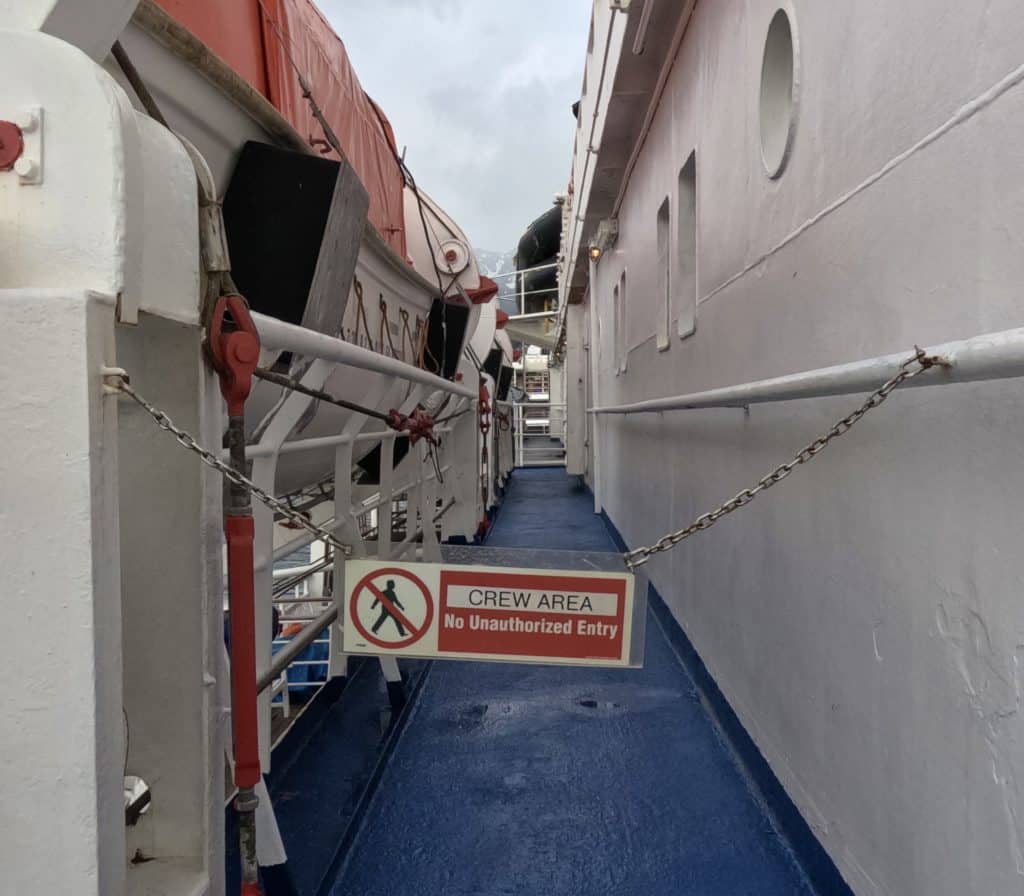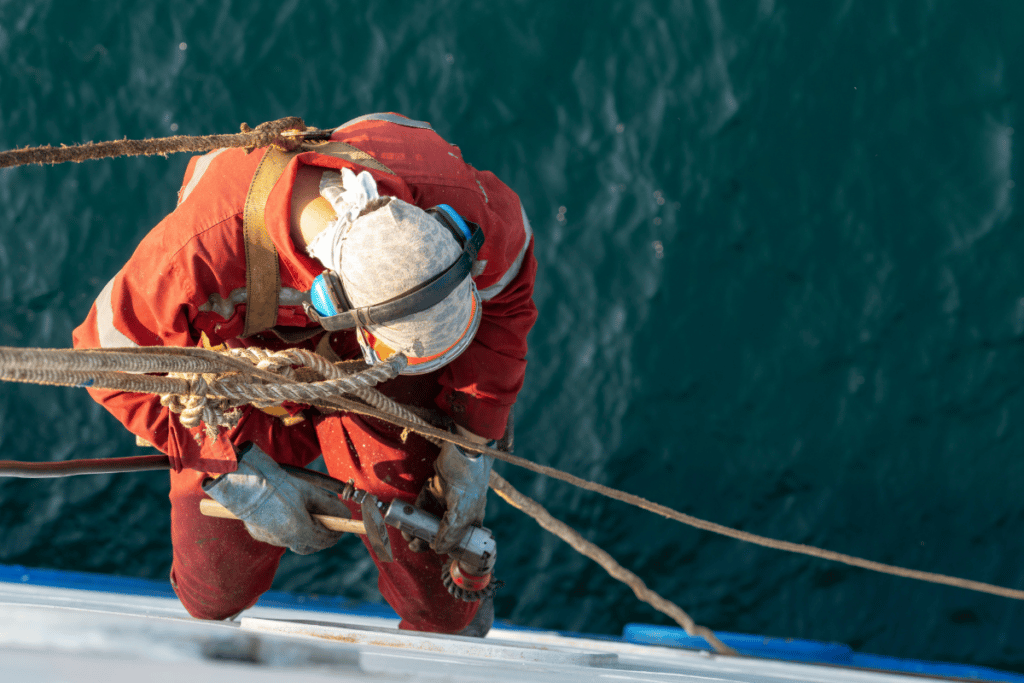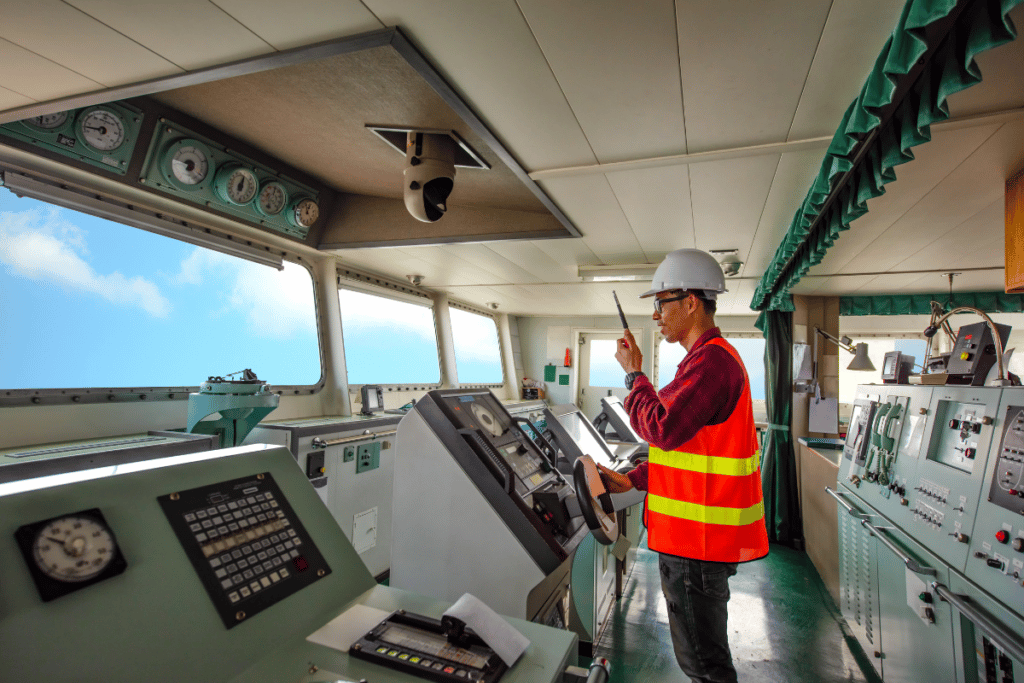All employees have the right to a safe workplace, and there are rules, regulations, and laws in place to protect cruise ship workers. Unfortunately, a safe work environment is not always a reality. Injury, crime, and catastrophic events are far too common and can result in life-altering injuries, lifelong medical conditions, and even death.
The cruise industry employs men and women of all nationalities who work all over the world on ships. There are laws in place to protect, offer legal remedies, and provide financial compensation to the crew that are U.S. citizens, U.S. visa holders, as well as workers of other nationalities. Oftentimes, these claims can be filed in the United States regardless of where the event took place or the nationality of the injured person.
These laws are complex, and it is important to hire an experienced attorney who knows how to handle these types of claims for financial compensation.

Common Injuries for Cruise Ship Crew Members
The types of potential injuries and events on a cruise ship are similar to those on land. However, there is a higher risk of occurrence in certain situations, due to the circumstances and environment of being on a ship.
Injuries can be the result of negligence on the part of the cruise line. Cruise lines are responsible for complying with maritime laws and regulations. They must also have and actively enforce policies, procedures, and practices to protect the crew from injury and harm.
Common cruise ship crew injuries include:
- Back, shoulder, and soft tissue injuries from lifting too much weight
- Slip and fall injuries
- Repetitive motion injuries
- Food poisoning and food-borne illnesses
- Contagious viral and bacterial illnesses
- Medical negligence and malpractice
- Physical and sexual assault by passengers or fellow crew members
- Neurological conditions from living in small, crowded spaces

Negligence that leads to injuries may include:
- Lack of ship maintenance
- Lack of, broken, or faulty equipment
- Unsafe exposure to toxic chemicals or substances
- Poor training for crew and medical staff
- Poor cleaning and maintenance of crew quarters
- Failure to properly supervise crew
- Failure to provide medical treatment
- Inadequate security
If you were injured it is important to act quickly and hire an experienced cruise ship injury lawyer. There are particular laws that apply to these types of cases including time limitations and deadlines. If you do not take action, hire an attorney, and get your claim filed timely, you could lose your right to file a legal claim for compensation.
The Legal Aspects
The Jones Act includes well-established law that allows “seaman” to seek financial compensation from their employer if they are injured or die.
The term “seaman” is used to refer to both men and women and most cruise ship crew qualify as seamen because their jobs involve working on a navigating vessel, performing work for the required period of time under the Act, and their position contributes to the day-to-day function of the vessel. It includes workers in the various departments of cruise ships including deck, maintenance, housekeeping, food and beverage, entertainment, administration, and hospitality.
Maritime Law Claims

The injured individual has the legal right to file a claim for financial compensation if they were injured as a result of their employer’s negligence. This is based on the requirement that an employer has the responsibility to provide a safe working environment for its employees.
The employer’s responsibility may even extend to injuries that aren’t work-related if the event occurred on the ship where the crew member lives or works but is not working at that time.
In the case of death, the family of the deceased crew member may file a claim for financial compensation.
Maintenance and Cure Claims
Maintenance and Cure is an important remedy under the Jones Act that offers financial compensation and medical treatment support to injured cruise ship crew. Employers are required to pay Maintenance and Cure until the seaman is recovered and fit for duty, or until they reach the point where medical treatment will no longer resolve the injury.

- Maintenance involves financial support for coverage of an injured seaman’s day-to-day living expenses. These expenses include household expenses such as rent, food, and utilities while recovering from injuries at home. The amount of support varies depending on individual circumstances such as where a seaman lives and their household expenses.
- Cure involves coverage of an injured seaman’s reasonable and necessary medical expenses. It covers medical care, including medications, adequate treatment and care, medical equipment, and transportation cost for the medical treatment.
U.S. Maritime Law Claims
There are laws apart from those in the Jones Act that cover and benefit injured cruise ship workers. Oftentimes, these types of claims for financial compensation for injuries, illnesses, violent crimes, and employment violations can be filed in the United States regardless of where the event took place or the nationality of the injured person.

You and your family may still be able to move forward with a claim for financial compensation, future lost wages, current and future medical treatment, permanent disability, and other consequences caused by injuries.
If you signed documents that include a release or waiver of the cruise line’s responsibility for injuries, these laws may have remedies you qualify for.
To learn more, it is important to contact an experienced lawyer who will review, assess, and advise you regarding your particular situation and your rights under the law.
Get Legal Help from Maritime Injury Guide Attorneys
If you or a family member were seriously injured as a result of events that took place on a cruise ship, you may be entitled to financial compensation.
At Maritime Injury Guide, we are here to help and offer FREE legal consultations. To learn more about your legal rights and options, complete the form on this page or call 866-871-8422 now.
Sources
- https://www.osha.gov/workers
- https://cruising.org/-/media/research-updates/research/2021-state-of-the-cruise-industry_optimized.ashx
- https://www.law.cornell.edu/wex/jones_act
- https://tripwire-magazine.com/common-cruiseship-injuries-felt-by-crew-people/
- https://www.researchgate.net/publication/329403950_Occupational_and_health_safety_on_cruise_ships_dimensions_of_injuries_among_crew_members
- https://millennialmagazine.com/2021/01/06/injured-on-a-cruise-ship-whos-responsible/
- https://www.law.cornell.edu/wex/maintenance_and_cure
- https://www.ce9.uscourts.gov/jury-instructions/node/126
- https://ami-ins.com/unseaworthiness/